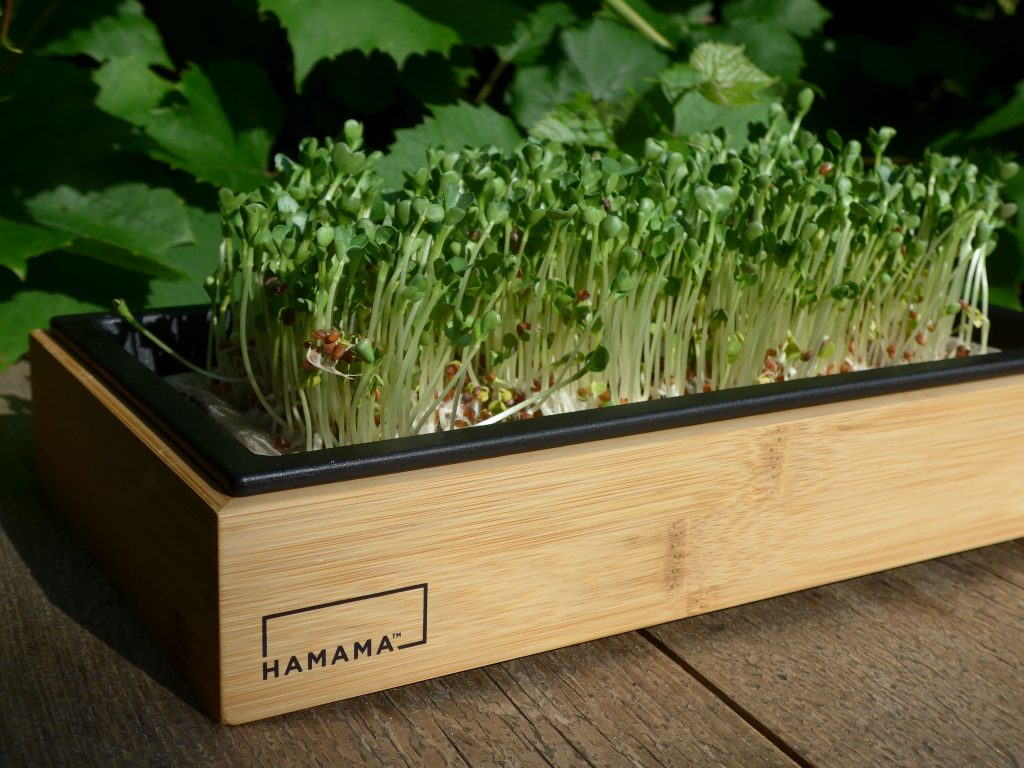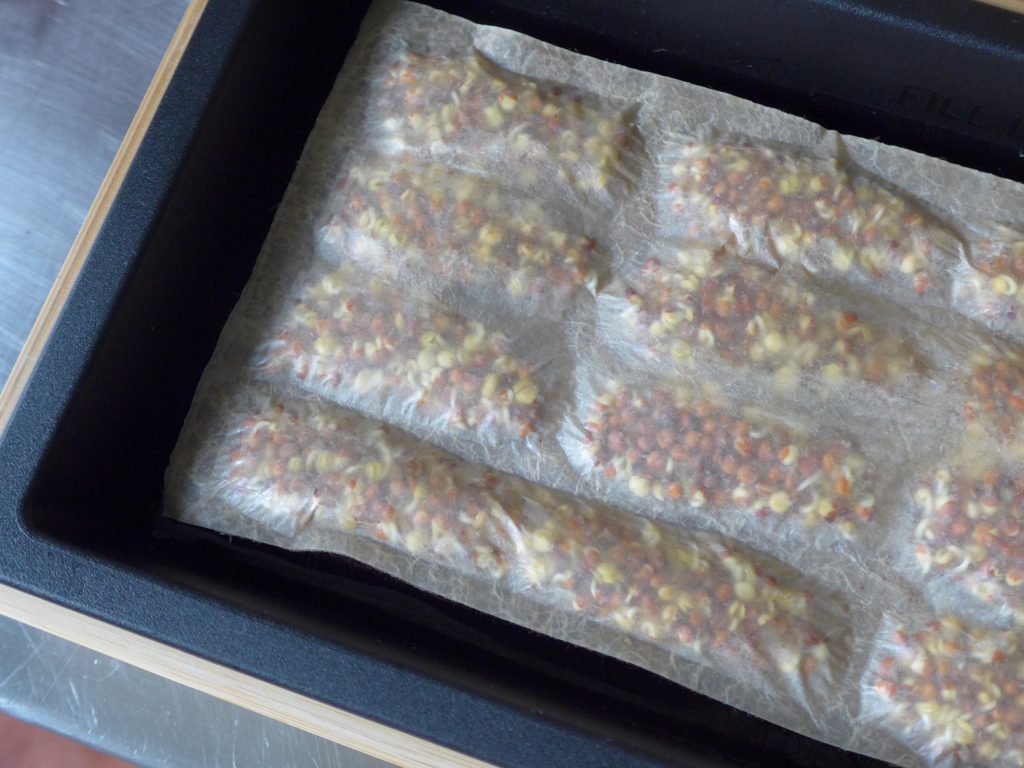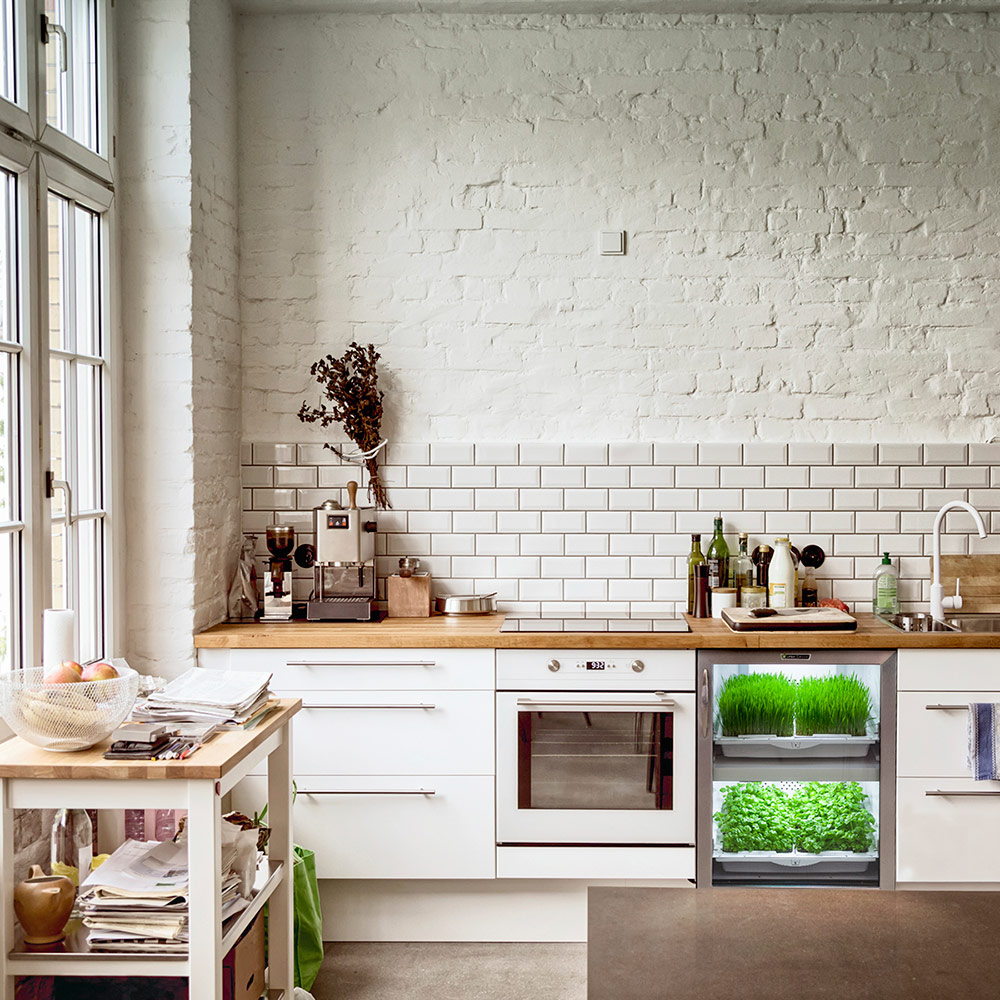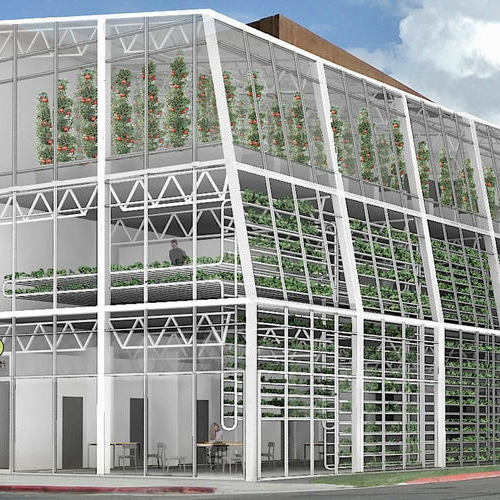Quick and Easy Microgreens With Hamama’s Home Gardening Kit
A foolproof system that requires very little labor

As microgreens, the garnish once reserved for restaurant tasting menus, make their way to café ubiquity, it turns out they’re very easy to grow at home. The small shoots don’t need too much space, light, or even time—just some water and a growing medium. Making microgreen-growing further foolproof is Hamama, a new San Francisco-based start-up founded by two MIT students, that offers a kit for convenience and affordability.

Simply fill up the tray with water, tuck their Seed Quilt in, and find a spot for it (it doesn’t need much light, even a place where there is simply a ceiling light will work), and the fruits of your minimal labor unfold before your eyes with noticeable growth daily. With the warm summer weather, the seeds seem to grow even faster: we placed the mat of daikon radish seeds in the tray Monday morning and harvested them on Friday morning. They are a sharp, peppery addition to various homemade dishes.
“Daniel and I met as researchers at the MIT Media Lab where we were building and operating larger scale indoor, controlled environment farms,” co-founder Camille Richman tells CH. “We were growing all kinds of crops indoors year-round in Boston and were excited about the power of indoor agriculture to provide the freshest produce to folks no matter where they lived or what the season. We worked together on the Food Computer project, which was a little version of these farms that you could port certain climates into in order to see the effects on the crops. The idea was to be able to crowdsource data on what environments create what changes in crops like amount produced/flavor/appearance.” It was that experience that got the duo into smaller scale, hyper-localized food production—like growing food inside homes and apartments.

“The beauty is the Seed Quilt invention which takes care of all the environmental controls passively, without the need for complex automation equipment,” says Richman. The Seed Quilts (three for $19, a few dollars cheaper if you go for subscription delivery) are essentially a coconut fiber mat that serves as the growing medium; no messy soil to clean up after harvesting, just a simple toss into the compost bin. Hamama currently offers all non-GMO seeds like kale, wheatgrass, cabbage, broccoli, and fenugreek. Enjoy your shot of vitamins in sandwiches or salads, blended into smoothies, atop labne or other dips. Microgreens may be small, but their flavor, texture, and color make a big impact.
Images by Sun Bak












